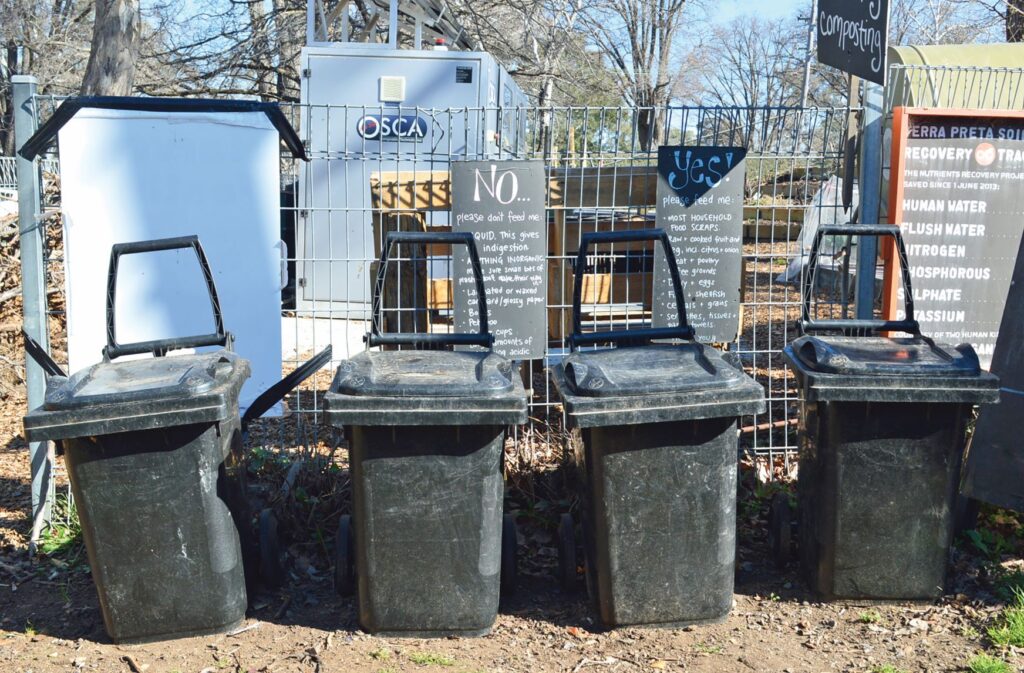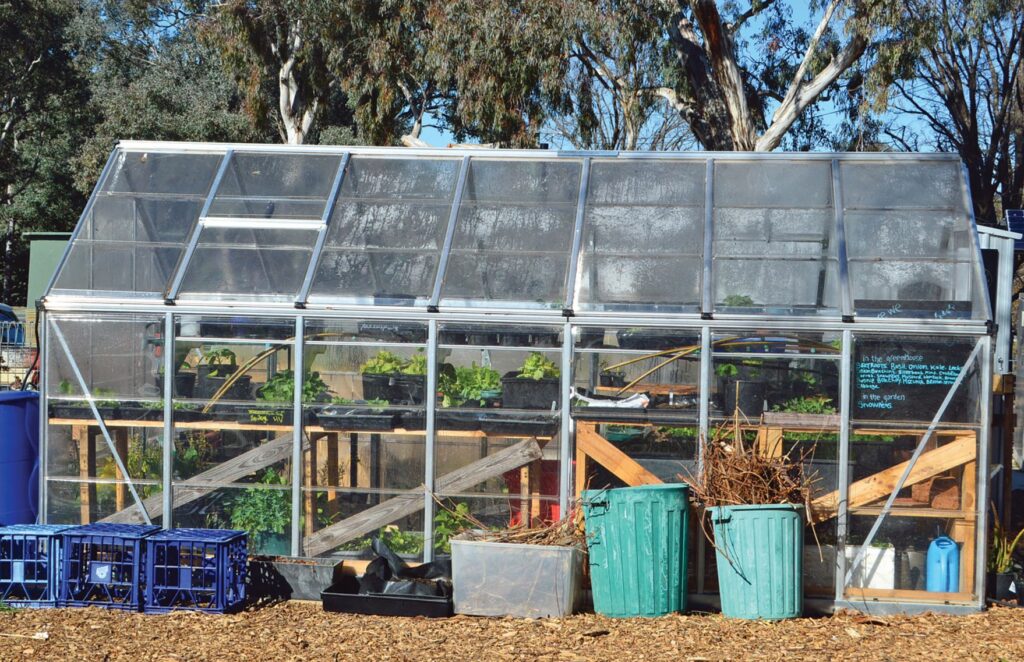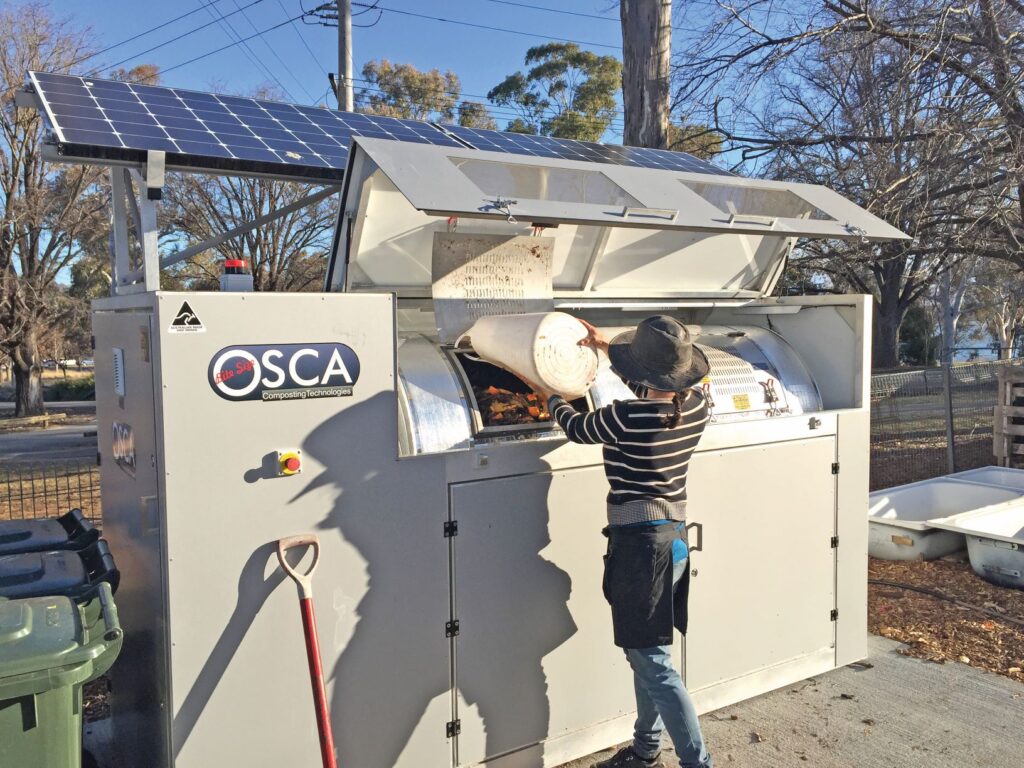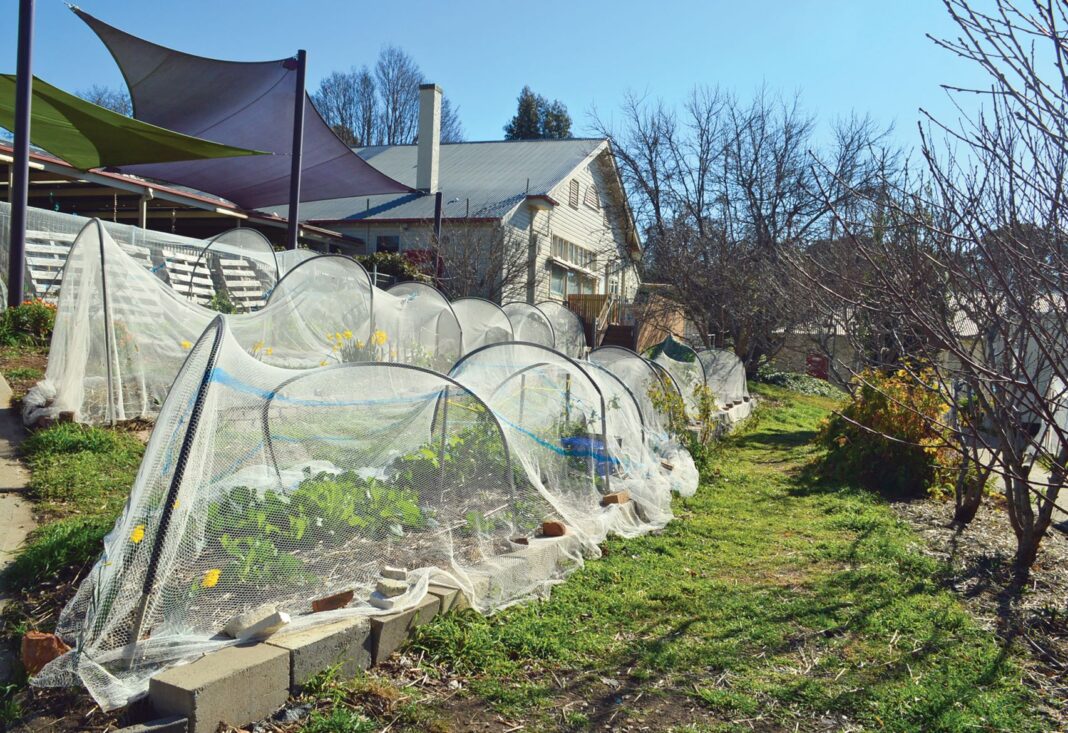The Canberra Environment Centre (CEC) is a non-government, not-for-profit organisation, which was established in the 1970s. It has been at its current location at the ANU at Acton for the past 12 years or so.

Ryan and Zoe, both with environmental backgrounds, run the centre alongside an extensive group of likeminded volunteers. Ryan said CEC is the perfect entry point to sustainable groups and living. Ryan is an advocate for simple and repeated behavioural changes, changes driven by individuals and local communities. Zoe has a passion for shared knowledge, learning and education – what better way to do so than with hands-on experience!
CEC is all about the local and wider community; the local pre-schools in adjacent buildings visit on a daily basis to feed the chickens and collect their eggs, as well as explore the gardens and enjoy some of its bounty. School groups are regular visitors, as are members of the public attending regular sustainability workshops and presentations on offer. The Canberra Seed Savers and their ever-growing veggie seed bank also calls CEC home.
The centre has a food waste education hub with composting being the central feature. The big and automated Hungry Composter is capable of processing 100 litres of food waste per day.

The donated food waste is fed into one of several chambers with 70% carbon materials added and heated to 65oC. After one week, it is put into a tub to break down for a further week before being ready to use in the garden. There is enough compost produced to maintain the gardens without purchasing any external resources.
Volunteers grow vegetables in the centre’s glasshouse to use in the Acton Community Garden at the site. Zoe said that essentially the garden is more about learning and experimenting than growing the perfect crop.
Plants are irrigated by a dripper system fed by tank water from the nearby pre-school. Regular working bees are held throughout the year to maintain the gardens and carry out various projects.
There are a selection of mature fruit trees growing nearby including a mulberry, peaches, nectarines, feijoas and citrus. Hardy crops of strawberries and rhubarb grow at their bases.

As with every garden, CEC’s garden isn’t without its challenges. Possums and large, very smart birds have been known to feast on fruits of the gardens and resident chicken house, so a range of exclusion barriers are used to good effect.
Recent additions include a beneficial insect friendly garden, formerly a tangle of Vinca weed. The garden was built by a Work for the Dole team and includes bee blocks and insect hotel, areas of bark and other cosy nooks, and a wide selection of bee friendly plants. Pollinating insects are attracted to a range of flower colours – interestingly, Ryan said that native bees are enticed by purple flowers in particular.
The centre has explored the wonderful world of mushroom fungi with various inoculated logs being located throughout the gardens. Ryan and Zoe explained that the logs have been injected with various inoculated items including dowel, sawdust and sugarcane. The bark mulch beneath a lovely old elm tree has also been inoculated with fungi organisms.
For more information: www.canberraenvironment.org
For more:



